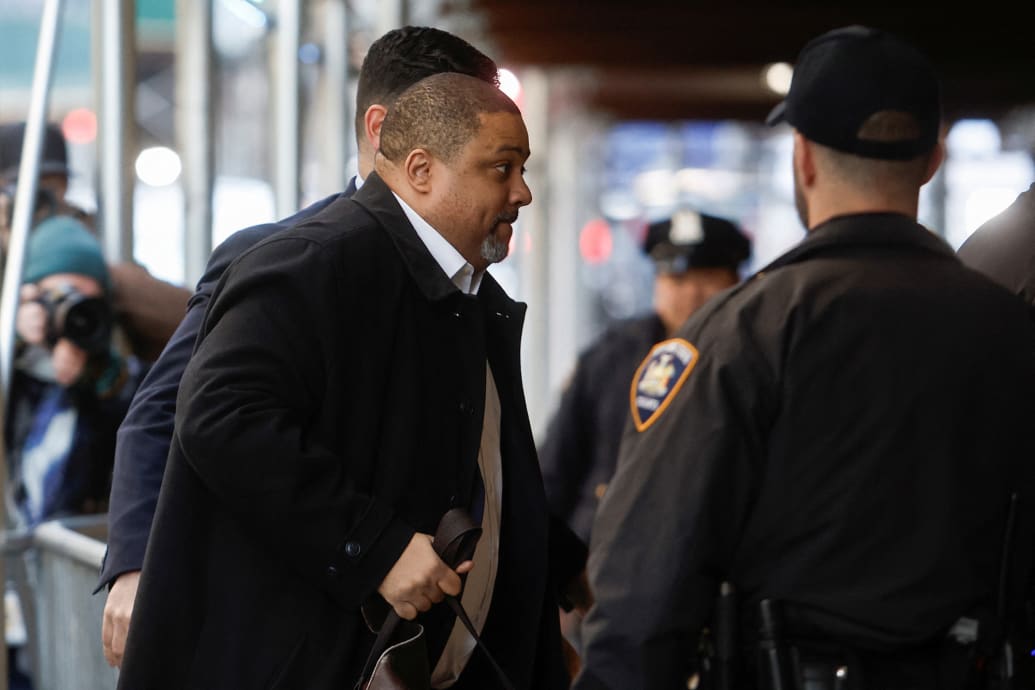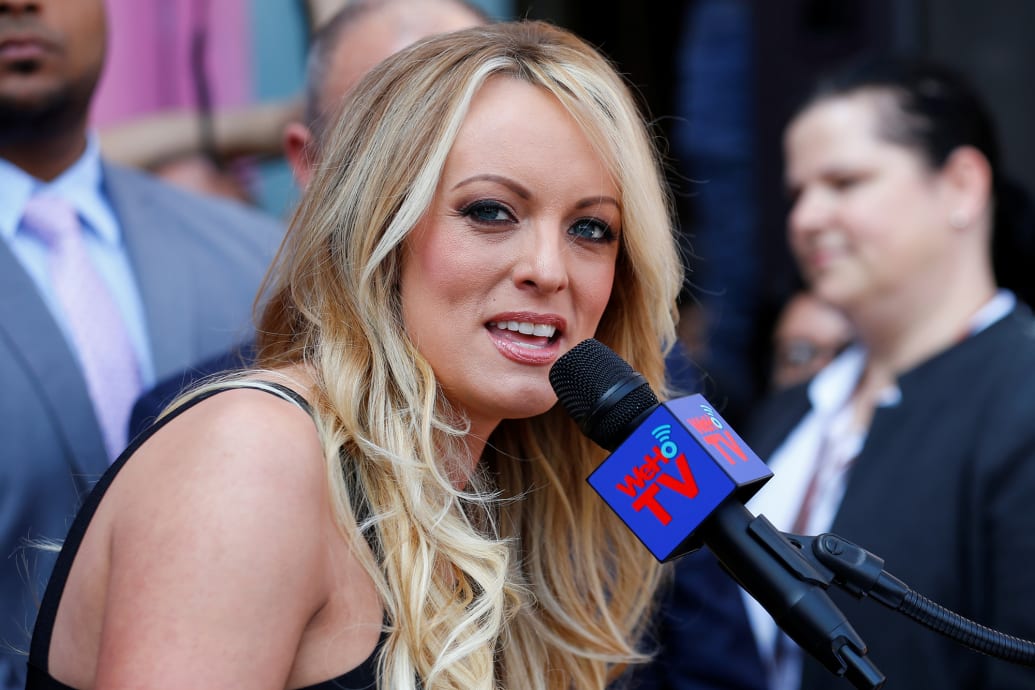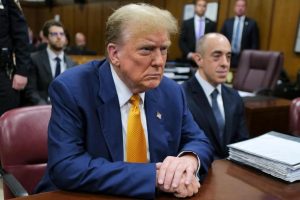Get more news and opinions in the twice-daily Beast Digest newsletter. Don’t miss the next big story, .
To get around this requires relying on a dubious, little-tested provision of state law that tolls (extends) the statute of limitations whenever somebody is “continuously” out of the state. Trump did not officially switch his legal residence from New York to Florida until 2019, but in the years prior he spent relatively little time at Trump Tower. Partly because he was more often staying at his other properties, but mostly because he was in Washington, being the president.
State courts have offered differing interpretations of how this law works, and it’s rarely been tested. In principle, the theory behind tolling the statute of limitations is to exclude time when somebody is beyond the reach of the law through their own actions.
Donald Trump was not a fugitive these past seven years. He was not hiding in a cabin in the woods somewhere. He was not hard to find. Even if it’s correct, it is an archaic presumption that somebody in another state is meaningfully unreachable by state laws. States issue arrest warrants for people in other states all the time. They are routinely carried out, followed by a largely pro forma rubber-stamp extradition process. This process even has its own clause in the Constitution.
Nor does alleged presidential immunity work. Even if Trump had total immunity while in office, a speculative and highly disputed constitutional theory, then the likeliest result is not that he couldn’t be indicted. It would be that the indictment is held in abeyance until he’s available to stand trial after leaving office. There’s no reason New York couldn’t have brought the indictment in a timely manner, as our legal system requires for good reasons.
The Wrong Case
Any one of these points would be enough to make a typical prosecutor wary. Stringing together so many weak links is bordering on absurd, especially in the matter of such a long-ago triviality.
On many potential charges against Trump—for trying to manipulate Georgia’s election results or for inciting Jan. 6 or for hoarding top secret documents—it’s easy to make the case that anybody else would likely be prosecuted under the same circumstances. He’s not being unfairly targeted, he’s being treated fairly as a citizen under the law just like any other, exactly as he should be.

Manhattan District Attorney Alvin Bragg walks outside the District Attorney’s offices as Bragg’s office investigates $130,000 paid in the final weeks of former President Donald Trump’s 2016 election campaign to Stormy Daniels, a porn star who said she had a sexual encounter with Trump in 2006 when he was married to his current wife Melania, in New York City on March 27, 2023.
Amanda Perobelli/Reuters
That argument is not applicable to Stormy-gate. No other person under the same circumstances would be prosecuted on this weak a case. That holds even if additional related charges (such as obstruction of justice and the like) are also charged, a distinct possibility given the large number of charges being reported. It’s possible such charges would be on stronger legal ground, covering more recent conduct under more clearly established and commonly used laws. We will be in a much better to judge when the indictment is unsealed. But it would still be extremely unusual to bring those sorts of charges on a matter that would have never even been investigated if it was anyone else.
It is plainly, undeniably about going after Trump because he’s Trump. In doing so, it undermines the broader case for prosecuting him on much more important and much more legally sound charges. All this for a case which would, even if it overcomes all these hurdles and secures a conviction, almost certainly result in a slap on the wrist sentence with no time served.
The example of Al Capone has come up a lot. The notorious mobster was obviously guilty of much more serious crimes, but he was ultimately sent to prison for federal income tax evasion. This is mentioned as if it’s a clever and admirable precedent and reasonable comparison. It’s not.
Al Capone’s tax evasion was, in the first place, much more serious and much more closely related to his other crimes in running an organized criminal enterprise.
Even so, we should not look kindly on the idea that if the government can’t make its real case against you, they can always just get you on some other technicality. We should be especially cautious about that when our laws are so numerous and vague that the average person commits countless felonies all the time. Reasonable and consistent standards of prosecutorial discretion are part of the rule of law, too.
Prosecuting Trump over Stormy Daniels is not like convicting Al Capone of tax fraud. It’s more like prosecuting Al Capone for a decade-old unreturned library book on the theory that it’s felony theft of government property. And also the statute of limitations doesn’t apply because he spent too many days out of state several years ago.
Devil His Due
It’s understandable that for much of the country, the desire to see Trump face justice for his misdeeds overrides any concern about the legal particulars. There aren’t many people who don’t have a strong opinion about Donald Trump at this point, and prosecuting him polls better than not prosecuting him.
But for both principled and more pragmatic reasons, bringing a frivolous and weak case against Trump does nothing to help.
The main argument raised against prosecuting a former president (or potentially an incumbent president) is that it will set off a cascade of tit-for-tat politically motivated prosecutions. This concern isn’t entirely unreasonable. It can be overcome only by arguing the severity of the crime outweighs that interest.
When somebody tried to overturn the Constitution and usurp the highest office in the land, that bar might be met. Having your sleazy lawyer pay off your ex-mistress does not.
In A Man for All Seasons, a fictionalized Sir Thomas More famously rebukes an argument for denying unsympathetic people their full legal rights, for bending the law because they just really deserve it. As he concluded, “Yes, I’d give the Devil benefit of law, for my own safety’s sake!”
Giving the devil the benefit of law isn’t about protecting the devil. It’s about protecting ourselves. Upholding the rule of law by holding Trump accountable should not be done by undermining the rule of law as it regards the state’s ultimate power to impose criminal punishments. To the degree there’s a moral and constitutional point to be made about how no man is above the law, a bogus prosecution based on the Stormy Daniels affair would defeat the whole purpose.
Sign up for the Beast Digest, a twice-daily run down on each day’s top stories. Don’t miss out, sign up here.






